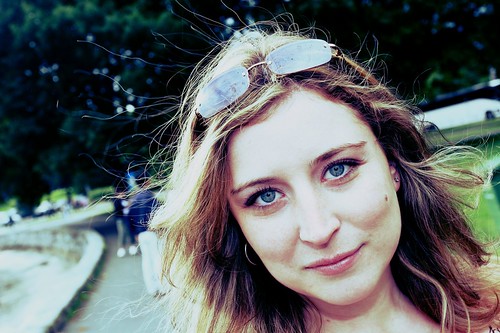Entry #35: Photography
Based on a suggestion by Raul, I’m going to talk a little bit about my entry into photography. I originally got into a photography because I wanted a hobby that exploited my creative side without all the trappings of the math and science I typically deal with in my day job. Photography to me has always been a bit of a release, a way to unwind and simply see only a small portion of the world at a time. It’s like turning the power off and noticing your ears are ringing — it represents a way for me to unplug from the world for a period of time.
I picked up my first digital camera in 2000. It cost me $1000 at the time, and compared to cameras nowadays, didn’t really take great photos. That being said, it completely changed the landscape of photography for me, since the incremental cost of actually taking a photo went from around $1 down to essentially 0 cents. Given that photowalks no longer cost me any money, I quickly started experimenting with different techniques, figuring out what I liked about photography and what I didn’t like.
Sometime around 2004, I picked up my first digital SLR camera, the Canon EOS 20D. It was quite the departure from the camera I had used before, and immediately changed how I approached photography. Given that one of my first lenses was a 50mm fixed lens, I quickly learned how to move my feet to pull off a shot, and also the importance of properly framing a shot. Over time, I have learned to approach every shot as a unique opportunity to make an impression. Everytime I press the shutter, I basically ask myself “what is it I’m trying to take a photo of here?”
A common mistake most people do in photography is to simply hold up the camera in front of something they want to take a photo of and press the shutter. With that approach, typically you end up with a lot of clutter, or a photo that really doesn’t have any context. If it’s a photo of a person, which aspects are important for you to capture? Is it the model’s hair, or the fact that she’s standing in front of a landmark? Is it the model’s beauty, or the beauty of having a model amongst an certain environment. After you ask yourself those questions, you can then approach how you want to frame the shot. Try to make the framing reflect the purpose of the photo.
The best piece of advice I can give to anyone trying to get into photography is to go out periodically from time to time and force yourself not to use your zoom feature. This will cause you to think long and hard about each shot, and force you to use your imagination to make up for the inflexibility of your lens. After a while, you’ll be able approach shots, even with a zoom lens, in an entirely different way.
This entry was written for Blogathon 2008, and in support of the Union Gospel Mission charity. If you’d like to donate to the cause, please visit the blogathon donation page and fill out the form near the middle. You can also follow the blogathon RSS feed for this site by clicking here.

